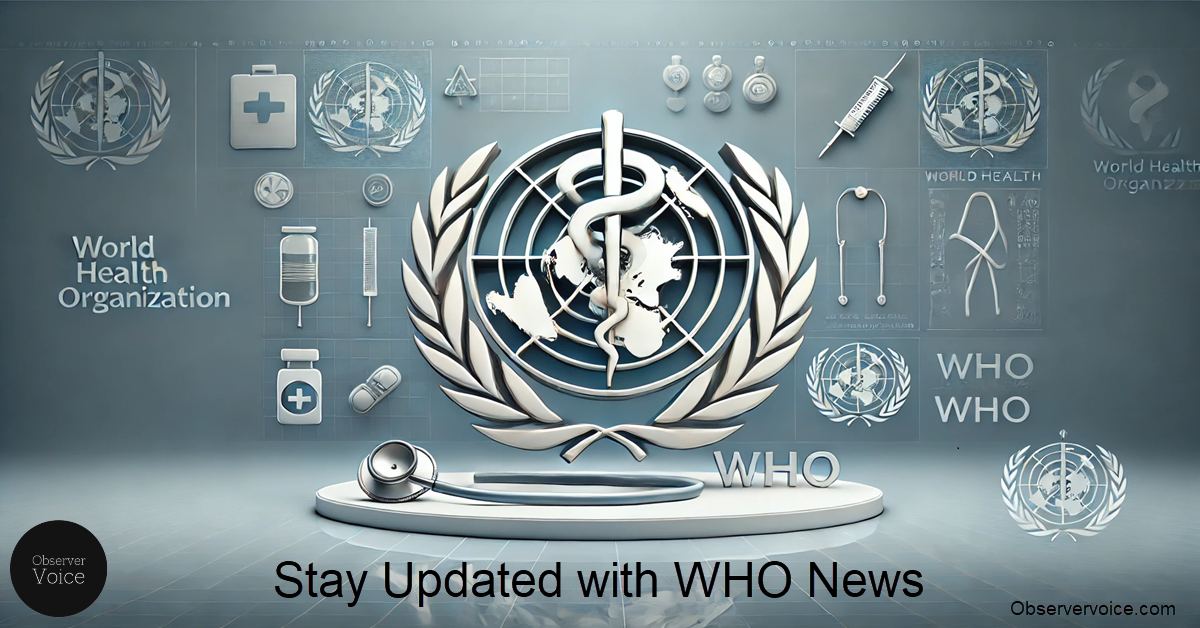Combating Antimicrobial Resistance in the Eastern Mediterranean

Antimicrobial resistance (AMR) is emerging as a significant threat to public health, economic stability, and development, particularly in the Eastern Mediterranean Region. The World Health Organization (WHO) has highlighted that this region has the highest antibiotic consumption globally, with rates nearly 25% above the global average. The misuse and overuse of antibiotics are primary contributors to the rise of AMR. As World Antimicrobial Awareness Week (WAAW) 2024 concludes, WHO is urging all stakeholders—governments, healthcare professionals, and communities—to take immediate action under the banner of “Educate. Advocate. Act Now.” This article explores the critical steps needed to combat AMR effectively.
Educate: Raising Awareness on AMR
Education is the cornerstone of combating antimicrobial resistance. Raising awareness about AMR empowers individuals and communities to understand its risks and the importance of responsible antibiotic use. Public education campaigns should focus on the dangers of misusing antibiotics, such as taking them without a prescription or not completing prescribed courses.
Healthcare professionals play a vital role in this educational effort. They must be equipped with national stewardship guidelines and resources like the WHO AWaRe (Access, Watch, Reserve) antibiotic book. This resource provides evidence-based guidance on selecting the appropriate antibiotic, determining the correct dosage, and establishing the duration of treatment. By adhering to these guidelines, healthcare workers can help ensure that antibiotics remain effective for future generations.
Moreover, educational initiatives should target various demographics, including youth groups and community organizations. Engaging these groups can foster a culture of responsible antibiotic use and encourage advocacy for better health practices. Ultimately, a well-informed public can significantly contribute to the reduction of AMR by making educated choices regarding antibiotic use.
Advocate: Mobilizing Support for AMR Initiatives
Advocacy is essential for placing AMR at the forefront of public health agendas. It requires a concerted effort from multiple stakeholders, including governments, international organizations, and community groups. By forming partnerships, these entities can mobilize resources and develop targeted programs to address AMR effectively.
Advocacy efforts should aim to increase funding for research and innovation in the field of antimicrobial resistance. This includes developing new antibiotics and alternative treatments, as well as improving diagnostic tools. Additionally, public health policies must prioritize AMR to ensure that it receives the attention and resources it deserves.
Community initiatives can also play a significant role in advocacy. Local organizations can raise awareness about AMR and promote responsible antibiotic use through workshops, seminars, and outreach programs. By engaging the public and fostering a sense of shared responsibility, these initiatives can create a groundswell of support for AMR-related policies and practices.
Act Now: Urgent Steps to Combat AMR
The urgency of addressing antimicrobial resistance cannot be overstated. WAAW serves as a crucial reminder that AMR is a collective responsibility. Immediate action is required from all sectors of society, including individuals, healthcare professionals, and governments.
Governments must prioritize improving water, sanitation, and hygiene (WASH) practices, as well as infection prevention and control (IPC) measures. These improvements are vital for reducing the spread of infections and, consequently, the need for antibiotics. Additionally, expanding immunization programs can help prevent diseases that often require antibiotic treatment.
Healthcare professionals must adopt and promote responsible antimicrobial prescribing practices. This includes educating patients about the importance of adhering to prescribed treatments and the dangers of self-medication. Professional associations should also engage in peer-to-peer education to raise awareness among healthcare workers about the implications of AMR.
Dr. Hanan Balkhy, WHO Regional Director for the Eastern Mediterranean, emphasizes that “every government, every partner, every sector, and every stakeholder needs to understand that AMR knows no boundaries.” Collective action is essential to protect public health and economic stability. The time to act is now, as the consequences of inaction could be dire, with projections indicating that AMR could lead to millions of deaths and significant economic losses in the coming decades.
Antimicrobial resistance is a pressing global health issue that requires immediate and coordinated action. By focusing on education, advocacy, and urgent action, stakeholders can work together to combat AMR effectively. The WHO’s call to “Educate. Advocate. Act Now” serves as a rallying cry for all to join in this critical fight. Only through collective efforts can we hope to mitigate the impact of AMR and safeguard public health for future generations.
Observer Voice is the one stop site for National, International news, Sports, Editor’s Choice, Art/culture contents, Quotes and much more. We also cover historical contents. Historical contents includes World History, Indian History, and what happened today. The website also covers Entertainment across the India and World.

